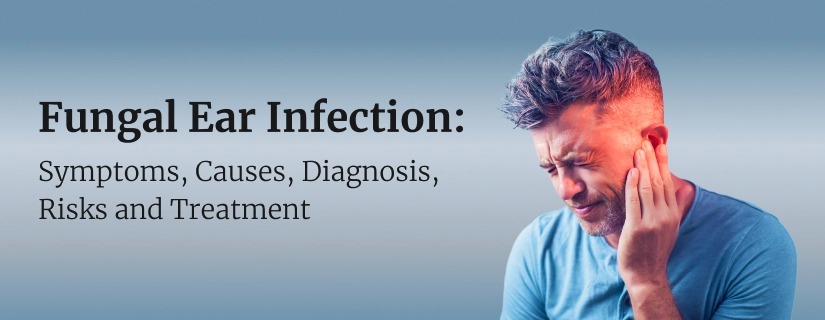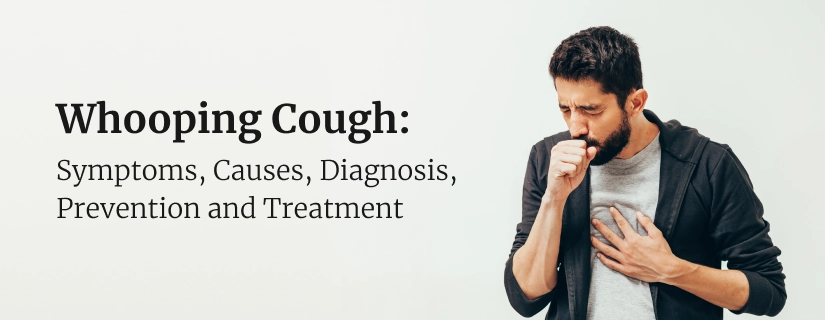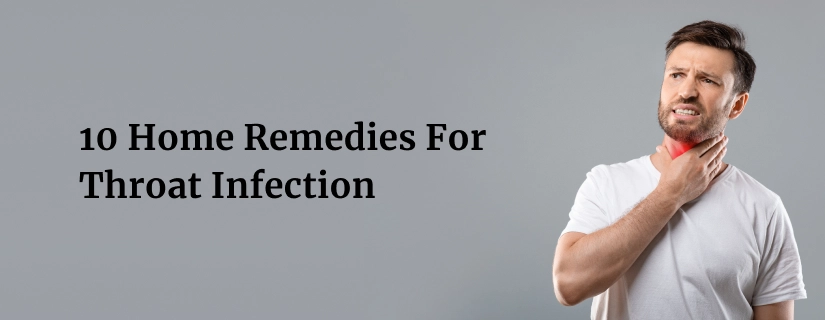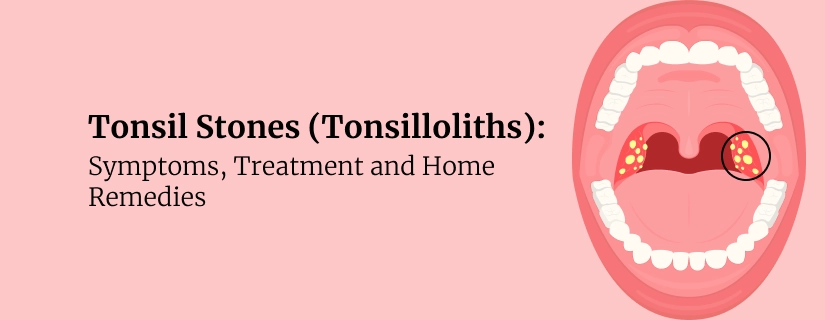-
Doctors
-
Specialities & Treatments
Centre of Excellence
Specialties
Treatments and Procedures
Hospitals & Directions HyderabadCARE Hospitals, Banjara Hills CARE Outpatient Centre, Banjara Hills CARE Hospitals, HITEC City CARE Hospitals, Nampally Gurunanak CARE Hospitals, Musheerabad CARE Hospitals Outpatient Centre, HITEC City CARE Hospitals, Malakpet
HyderabadCARE Hospitals, Banjara Hills CARE Outpatient Centre, Banjara Hills CARE Hospitals, HITEC City CARE Hospitals, Nampally Gurunanak CARE Hospitals, Musheerabad CARE Hospitals Outpatient Centre, HITEC City CARE Hospitals, Malakpet Raipur
Raipur
 Bhubaneswar
Bhubaneswar Visakhapatnam
Visakhapatnam
 Nagpur
Nagpur
 Indore
Indore
 Chh. Sambhajinagar
Chh. SambhajinagarClinics & Medical Centers
Book an AppointmentContact Us
Online Lab Reports
Book an Appointment
Consult Super-Specialist Doctors at CARE Hospitals
Swollen Lymph Nodes: Symptoms, Causes, Diagnosis and Treatment
Updated on 25 March 2024

Swollen lymph nodes, also known as lymphadenopathy, are a common occurrence that can be indicative of various underlying health issues. These tiny, oval-shaped structures are essential for the body’s immune system as they filter substances that can be harmful or toxic. The neck, armpits, and groyne are just a few of the body regions where lymph nodes may be located. They are connected by lymphatic vessels which carry the lymph in different parts of the body. Enlargement of these nodes or lymph gland swelling often serves as a sign that the immune system is responding to an infection, injury, or other medical conditions.
What are Swollen Lymph Nodes?
Lymph nodes are part of the lymphatic system, which is a network of vessels and nodes that transport a fluid called ‘lymph’ throughout the body. Lymph nodes are found around the body in different parts like, under the neck, head, arms, and the groyne. They act in the capacity of filters, filtering out bacteria, viruses and other pathogens before they have a chance to access secondary parts of your body. Lymph gland swelling is characterised by swelling of these small lumps, which are usually inflamed due to an infection somewhere in the body. While they are commonly associated with infections, other underlying health issues can also lead to lymph node swelling.
Symptoms of Swollen Lymph Nodes
Your body's network of organs, veins, and lymph nodes is known as your lymphatic system. Your head and neck region are home to a large number of lymph nodes. You may observe the following symptoms when you have swollen lymph nodes in the neck:
- The most noticeable symptom is the enlargement of one or more lymph nodes. They may feel like small, soft, movable bumps under the skin.
- One may feel tenderness while touching swollen lymph nodes. The degree of tenderness may vary depending on the underlying cause.
- Swollen lymph nodes may be accompanied by pain or discomfort in the afflicted region, particularly when pressure is applied.
- In some cases, the skin over the swollen lymph nodes may appear reddish, and the area may feel warm to the touch.
- Depending on the underlying cause, additional symptoms such as fever, fatigue, and night sweats may be present.
You may also have the following signs and symptoms in addition to your enlarged lymph nodes, depending on the cause:
- Sore throat, runny nose, and other symptoms of upper respiratory infection
- Night sweats
- Fever
- Hard, fixed, quickly expanding nodes that might be lymphoma or cancer
Causes of Swollen Lymph Nodes
Small, spherical, or bean-shaped cell collections are called lymph nodes. Lymph nodes include a variety of different immune system cell types. These specialised cells guard you by eliminating intruders and filtering lymphatic fluid as it passes through your body. Any infection, bacterial, viral, or fungal infections, is the most frequent cause of lymph node swelling. Additional reasons why lymph nodes might swell are as follows:
- Autoimmune diseases, such as rheumatoid arthritis or lupus, can cause inflammation that leads to swollen lymph nodes.
- Lymphoma, leukaemia, and metastatic cancers are among the conditions that can cause lymph node enlargement. Cancer cells can travel through the lymphatic system, leading to the accumulation of abnormal cells in the nodes.
- Certain medications, such as phenytoin (an anticonvulsant) or allopurinol (used to treat gout), can sometimes cause an allergic reaction leading to swollen lymph nodes.
- Non-infectious causes, such as injury or trauma near a lymph node, can also result in lymphadenopathy.
Complications of Swollen Lymph Nodes
If you don't treat the infection causing your enlarged lymph nodes, an abscess could form. Abscesses are small, locally concentrated pus collections caused by infections. Pus is composed of fluid, dead tissue, white blood cells, and bacteria or other intruders. For an abscess, drainage and antibiotic treatment can be required. Other complications are:
- If the underlying cause is an infection, the pathogens can spread to other parts of the body if the swollen lymph nodes are unable to contain the infection effectively.
- In some cases, lymph nodes may remain enlarged for an extended period, causing discomfort and affecting the surrounding tissues.
- Persistent swelling can compromise the normal function of the lymphatic system, leading to complications such as lymphedema.
Diagnosis of Swollen Lymph Nodes
Your doctor may require the following to determine the possible cause of your enlarged lymph nodes:
- Physical Examination: The doctor will conduct a thorough physical examination to assess the size, tenderness, and location of the swollen lymph nodes.
- Medical History: Understanding the patient's medical history, recent illnesses, and any potential exposure to infectious agents is crucial for identifying the underlying cause.
- Blood Tests: Certain blood tests might assist in confirming or ruling out any possible underlying medical issues.
- Imaging Studies: To identify tumours or identify possible sources of infection, a computerised tomography (CT) scan of the afflicted region or a chest X-ray may be helpful.
- Biopsy: In order to confirm the diagnosis, the doctor could perform a biopsy. In order to examine the lymph node under a microscope, he or she will take a sample or even the entire node.
Treatment of Swollen Lymph Nodes
After the viral infection goes away, swollen lymph nodes that were caused by it typically become normal again. For viral infections, antibiotics are of no use. Depending on the reason, different causes of enlarged lymph nodes require various swollen lymph nodes treatments. Treating the underlying cause is key to resolving swollen lymph nodes.
- If you have an infection, you could be given antiviral or antimicrobial medications to treat the underlying cause of your lymph node swelling. In order to help with pain relief and inflammation reduction, your doctor may also suggest medications like ibuprofen and acetaminophen.
- Applying warm compresses to the affected area may provide relief and promote drainage of the lymph nodes.
- Getting adequate rest and staying well-hydrated can support the body's immune system in its efforts to combat infections.
When to See a Doctor?
While mild and transient lymph node swelling is often a normal part of the body's immune response, certain signs warrant prompt medical attention:
- If the swelling persists for more than two weeks without improvement, it's advisable to consult a doctor.
- Nodes that grow rapidly or become unusually large should be evaluated by a doctor.
- An underlying disease as dangerous as cancer may be indicated by nodes that feel hard, rigid, or immovable.
- If swollen lymph nodes are accompanied by persistent fever, unexplained weight loss, or other concerning symptoms, seeking medical advice is crucial.
Conclusion
Swollen lymph nodes are a common response to infections and other health conditions, serving as a valuable indicator of the body's immune activity. While many cases resolve on their own or with simple treatments, persistent or severe symptoms require professional evaluation. Certain cancers, such lymphoma, leukaemia, and breast cancer, can cause swelling in the lymph nodes. It is advisable to get medical attention if you have concerns about enlarged lymph nodes, particularly if the swelling continues or if you have other concerning symptoms.
FAQs
Q1. When should you worry about a swollen lymph node?
Ans. You should be concerned about a swollen lymph node if it persists for more than two weeks, grows rapidly, feels hard or immobile, or is accompanied by symptoms such as persistent fever, unexplained weight loss, or other concerning signs. Seeking prompt medical attention is advisable in such cases.
Q2. What is the main cause of swollen lymph nodes?
Ans. The primary cause of swollen lymph nodes is an immune system response to infections, including bacterial, viral, or fungal infections. Other factors such as inflammatory conditions, cancers, medications, or trauma near lymph nodes can also contribute to their enlargement.
Q3. Are swollen lymph nodes serious?
Ans. Swollen lymph nodes are often a normal response of the body to infections or other health conditions and may not be serious. However, persistent, rapidly growing, or hard nodes, especially when accompanied by additional symptoms, may indicate a more serious underlying issue, warranting medical evaluation.
Q4. Is it OK for lymph nodes to swell?
Ans. Occasional swelling of lymph nodes is a normal and common response to infections or other immune system activity. However, persistent, prolonged, or severe swelling, especially with accompanying symptoms, may indicate an underlying issue and should be evaluated by a healthcare professional.
Q5. How long will swollen lymph nodes last?
Ans. The duration of swollen lymph nodes varies based on the underlying cause. Infections typically lead to temporary swelling that resolves within a few weeks, while persistent or worsening swelling may require medical attention for further evaluation and treatment.
ENQUIRY FORM
SELECT CATEGORIES
-
Neurosciences (16)
-
Neurology (37)
-
Neurosurgery (14)
-
Orthopaedics (48)
-
Oncology (33)
-
Obstetrics and gynecology (51)
-
Pulmonology (23)
-
Urology (20)
-
Nephrology (13)
-
Psychiatry (7)
-
Dietetics and Nutrition (111)
-
General Medicine (63)
-
Cardiac Sciences (30)
-
Vascular & Endovascular Surgery and Interventional Radiology (10)
-
Gastroenterology (46)
-
Endocrinology (23)
-
Plastic Surgery (10)
-
Critical Care Medicine (5)
-
COVID-19 (16)
-
Dermatology (16)
-
Emergency Care (1)
-
Ophthalmology (4)
-
Pediatrics (14)
-
Laparoscopic and Bariatric Surgery (8)
-
ENT (15)
-
Kidney Transplant (1)
-
Liver Transplantation and Hepatobiliary Surgery (5)
-
General Surgery (3)
-
Internal Medicine (5)
-
Medicine Information
Hemoptysis (Coughing Up Blood): Causes, Treatment and Home Remedies
How to Unclog Ears: 9 Tips and Remedies
YOU MAY ALSO LIKE
RECENT BLOGS
-

Direct Anterior Approach in Total Hip Replacement: Advantages and Challenges
10 April 2025
Read More
-

Zinc Deficiency: Signs and Symptoms, Causes, Treatment
9 April 2025
Read More
-

Chest Pain When Coughing: Causes, Treatment and Home Remedies
9 April 2025
Read More
-

12 Health Benefits of Eating Mushrooms
8 April 2025
Read More
-

7 Health Benefits of Blood Donation You Should Know About
8 April 2025
Read More
-

Implantation Bleeding Vs Periods: Know the Difference
28 February 2025
Read More
-

Bloating During Ovulation: Symptoms, Causes and Remedies
28 February 2025
Read More
-

Itching During Dengue: Causes, Treatment and Home Remedies
18 February 2025
Read More
Have a Question?
If you cannot find answers to your queries, please fill out the enquiry form or call the number below. We will contact you shortly.














